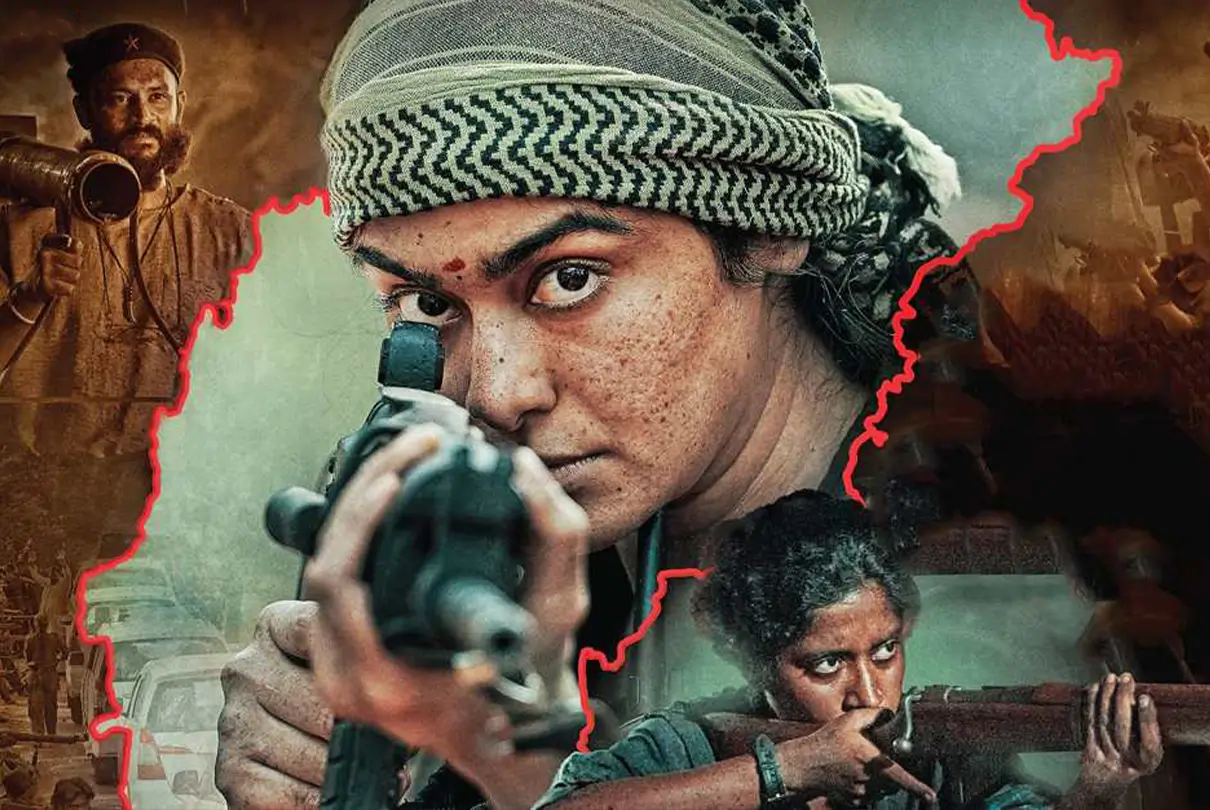Physical Address
304 North Cardinal St.
Dorchester Center, MA 02124

In the realm of Indian cinema, Adah Sharma has become synonymous with versatility, and her latest collaboration with director Sudipto Sen and producer Vipul Amrutlal Shah, “Bastar: The Naxal Story,” cements this reputation. Drawing inspiration from real-life incidents, this cinematic venture dives deep into the heart of Chhattisgarh’s tribal lands, where the specter of Naxalism looms large. With a runtime of 124 minutes, the film weaves together a tapestry of intrigue, political machinations, and human resilience.
The narrative unfolds with a gripping courtroom drama, thrusting viewers into the midst of a legal battle where IPS officer Neerja Madhavan, portrayed with gravitas by Adah Sharma, finds herself embroiled in controversy. Accusations of collusion with local politicians and allegations of training villagers for counter-insurgency activities through the organization Salwa Judum cast a shadow over Neerja’s integrity. As the prosecution, led by the formidable Shilpa Shukla, lays bare these charges, the stage is set for a high-stakes confrontation.
Simultaneously, the film peels back the layers of Naxal insurgency, exposing the brutal realities faced by the region’s inhabitants. Through the eyes of Ratna, a grieving widow portrayed with raw emotion by Indira Tiwari, and her son Raman, convincingly portrayed by Naman Jain, audiences bear witness to the human toll of ideological warfare. Ratna’s journey of vengeance and Raman’s indoctrination into the Maoist fold serve as poignant reminders of the collateral damage inflicted by armed conflict.
Director Sudipto Sen deftly navigates the intricacies of the socio-political landscape, juxtaposing Neerja’s personal struggles with the broader canvas of insurgency. Against the backdrop of her pregnancy, Neerja’s unwavering commitment to justice underscores the sacrifices demanded by her profession. Meanwhile, the Naxals’ clandestine activities thrive amidst the shadows, aided by influential patrons who sow seeds of discord and dissent.
Visually stunning montages capture the essence of life in Bastar, juxtaposing moments of tranquility with bursts of violence and upheaval. However, the film’s climax falls short of expectations, with the resolution of the central conflict feeling somewhat anticlimactic. Despite this narrative misstep, the cinematography and score maintain a taut atmosphere, heightening the tension with each passing scene.
The ensemble cast delivers commendable performances, with Anangsha Biswas and Vijay Krishna leaving a lasting impression with their portrayal of Laxmi and Lanka Reddy, respectively. While Adah Sharma anchors the film with her commanding presence, her performance occasionally lacks the emotional depth required to fully resonate with the audience. Nevertheless, the supporting cast, including Raima Sen, Yashpal Sharma, and Purnendu Bhattacharya, imbue their characters with authenticity and depth.
“Bastar: The Naxal Story” serves as a stark reminder of the ongoing struggles faced by marginalized communities in the heart of India. Its unflinching portrayal of violence and injustice may unsettle viewers unaccustomed to such themes, underscoring the need for informed engagement with its subject matter.
In conclusion, “Bastar: The Naxal Story” offers a compelling cinematic experience that delves into the complexities of insurgency and its far-reaching consequences. While it may stumble in its narrative execution, the film’s exploration of real-life struggles resonates with authenticity and poignancy. For those willing to embark on this cinematic odyssey, “Bastar: The Naxal Story” promises a thought-provoking journey through the tangled webs of conflict and consequence.